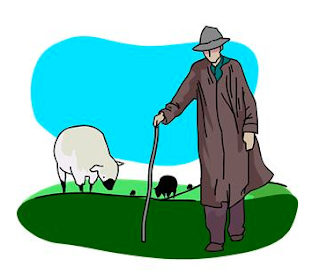 TODAY’S SPECIAL: John 19-21; Psalm 111
TODAY’S SPECIAL: John 19-21; Psalm 111
TO CHEW ON: “Simon Peter said to them, ‘I am going fishing.’ They said to him, ‘We are going with you also.’ They went out and immediately got into the boat, and that night they caught nothing.” John 21:3
Peter’s simple pronouncement, “I am going fishing,” becomes complex when we put it into context. Three years earlier he had left fishing to follow Jesus. The years he had spent with this incredible teacher were quite a ride. He had seen healings of all kinds, people raised from the dead, the Scribes and Pharisees bested. The wisdom of Jesus’ lessons and stories exceeded any he had ever encountered. He had experienced the very presence of heaven.
However, in the end, it all proved confusing and disappointing. Jesus didn’t do the expected and prove Himself Messiah. Instead He was put to death at the instigation of the very leaders to whom He had proved Himself superior. But Peter’s biggest disappointment was with himself. After pledging to stick by Jesus no matter what, he denied Him – and on the prodding of a mere woman.
Now, though Jesus had risen and Peter had seen Him, the future was still utterly foggy. And so his words, “I am going fishing,” seem a poignant attempt to reverse the last three years of his life. He will go back – back to the simple way things were before he met Jesus, back to when he was oblivious to the possibilities of what life could be, but also back to before he had proved himself such a useless cad.
Intuitive Jesus knew where Peter was and how to reach him. In their interchange Jesus put His finger on the exact thing that was bothering Peter and confronted him with it. He brought closure to the unfinished business of their broken relationship.
He also made it clear to Peter that fishing was finished business. He closed the door forever on it by giving Peter a new assignment. The three Jesus-years weren’t a waste or mirage. Instead they were the doorway to more responsibility (despite his failure): “'Feed my lambs.... Tend my sheep… Feed my sheep.'”
Have you ever been at a spot in your life when you’ve gone back to “fishing”? Perhaps after sensing the call of God, things haven’t worked out the way you thought they would or you’ve let yourself down. Take it from someone who has at various times retreated to the security of the way things were before – it rarely works. If you are tempted to go back to the past in your career or ministry, don’t, until you’ve spent time with Jesus and got the confirmation that that is indeed His next assignment.
PRAYER: Dear Jesus, help us to leave former things and ways behind. Give us the faith to face new challenges and forge into new territory at Your bidding. Amen.
PSALM TO PRAY: Psalm 111
MORE:
“…once you receive a commission from Jesus Christ, the memory of what God wants will always come like a goad; you will no longer be able to work for him on the common-sense basis.”******************
- Oswald Chambers, My Utmost for His Highest (March 4th reading)
Unless otherwise noted all Scripture quotations are taken from the New King James Version®. Copyright © 1982 by Thomas Nelson, Inc. Used by permission. All rights reserved.

















